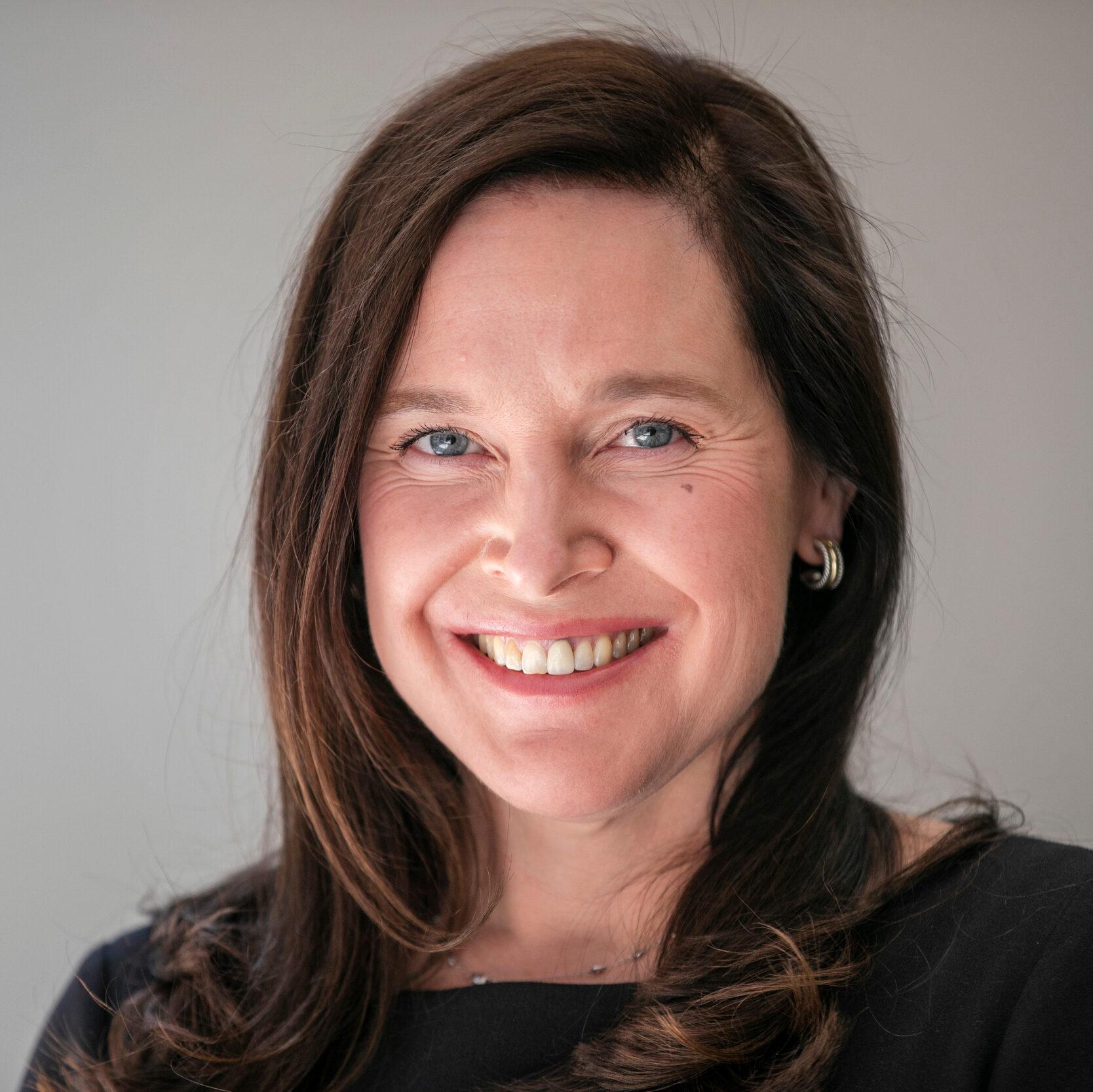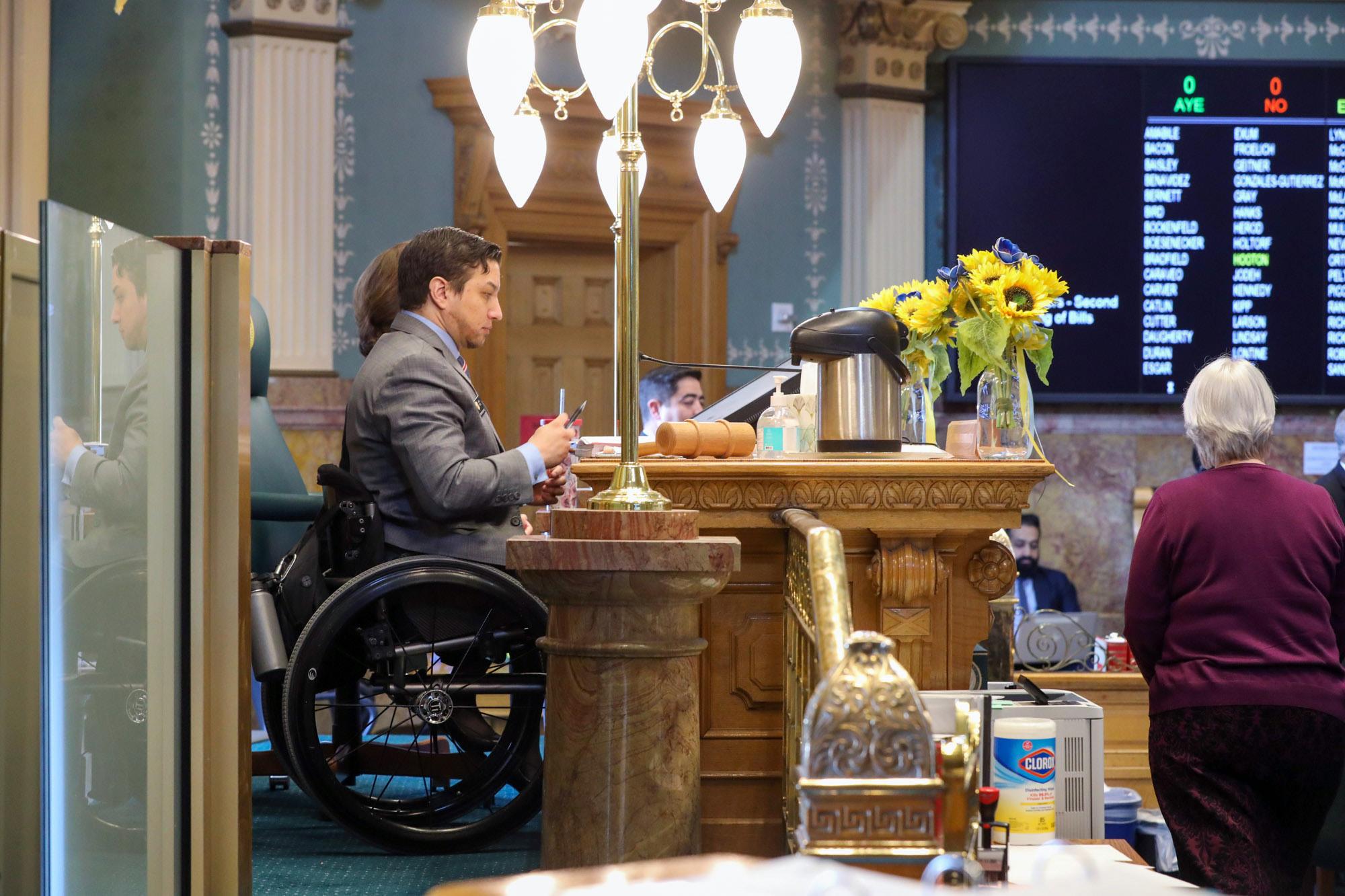
Disability rights activists have big goals at the Colorado legislature this year, to strengthen discrimination protections and reshape access to everything from government buildings and housing, to the great outdoors.
Supporters say it’s the most ambitious slate of proposals in recent history.
“We want to get our state to not just be, ‘We're gonna do the bare minimum,’” said Julie Reiskin, one of the heads of the Colorado Cross Disabilities Coalition.
Instead, the goal is, “how do we become a place where everyone with a disability is truly included?”
It’s a question Chad Winthrop has had to grapple with a lot since moving to the Denver area.
Three and a half years ago he was living an outdoorsman’s dream in Alaska — exploring the backcountry and enjoying all sorts of different activities. Then, in one moment, everything changed.
“My spinal cord injury was in a paragliding accident,” he recalled recently, “in one of the most beautiful places on earth.”
Winthrop’s injury left him with limited use of his legs, and a new lens on disability.
He initially moved to the Denver area for rehabilitation at Craig Hospital, one of the top facilities in the world for spinal cord injuries. But his nearby apartment swiftly proved problematic.
“The elevator turned out to be a chronic problem,” said Winthrop, who uses a wheelchair. “It would be broken for days or weeks on end.”
Left without alternatives to get in and out of his apartment, Winthrop eventually told the company they had to let him out of his lease. While federal law requires a percentage of units be accessible for people with mobility disabilities, he said it’s been an ongoing struggle to find housing that’s accessible, and available when he’s needed it. A state proposal in the works would more than double that required percentage of accessible units in apartment buildings.
“I think many of us have had that experience in trying to move into a new apartment, condo, townhome, or even back into our own homes, and realized how inaccessible the world was,” said Democratic Rep. David Ortiz of Littleton, the main sponsor.
Ortiz is Colorado’s first lawmaker to use a wheelchair. He was injured in a helicopter crash while serving with the U.S. Army in Afghanistan. The bill he’s working on would also require more accessibility in the common parts of new apartment buildings — modifications like lower mailboxes, braille on signs and designing communal areas without steps.
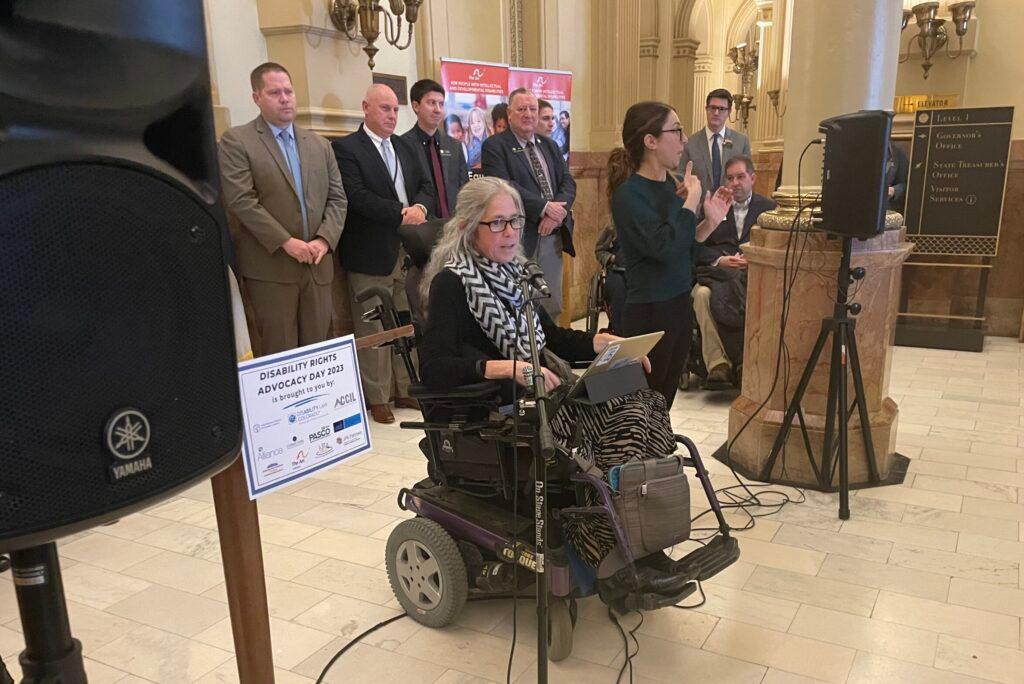
Those are relatively easy changes to implement, according to Drew Hamrick with the Colorado Apartment Association.
“Most people who are standing aren't negatively impacted by reaching further down to get their mail,” Hamrick said. “A person using the elevator that doesn't need braille isn't negatively impacted by the signage and braille also being there.”
But when it comes to designing and building more apartments for people who use wheelchairs — with things like lower countertops and modified kitchens — he worries the bill could require builders to put in more units than are needed.
“The problem with them is once you build them, nobody wants them, other than if you happen to be in a wheelchair, so you end up with a large inventory of units that are undesirable (and) have to be discounted and people living in units they don't want to live in.”
The Apartment Association is still negotiating with Ortiz about the proposal.
Opening the outdoors to all
Other bills still in the works aim to increase access to outdoor recreation.
One idea would set up a task force to create accessibility standards on everything from parking to signs and access for adaptive bikes and other equipment. Supporters also want to do more to enforce existing federal standards for ski lift accessibility for skiers and snowboarders who use adaptive equipment.
“Their resorts exist on federal lands. ADA is a law,” said Ortiz. “But this isn't just about skiing. This is also about trailheads in our state, county, city (and) national parks. I can't tell you how many times I've seen a peer post on social media that they can't access a trail” because the entry blocked their equipment.
A representative for the ski industry declined to comment while the proposal is still in the works.
Similarly, a spokesman for Colorado Parks and Wildlife said they would not comment on the proposals before they are introduced.
While negotiations continue behind the scenes on those ideas, there’s more agreement on a bipartisan effort to expand insurance coverage for prosthetics so that young people have more access to devices for specific sports.
House Bill 1136 would require insurance companies to pay for one additional prosthetic device, in addition to someone’s daily equipment, if a physician says it’s necessary to help them participate in a sport or outdoor activity. It would only apply to people 26 years and younger.
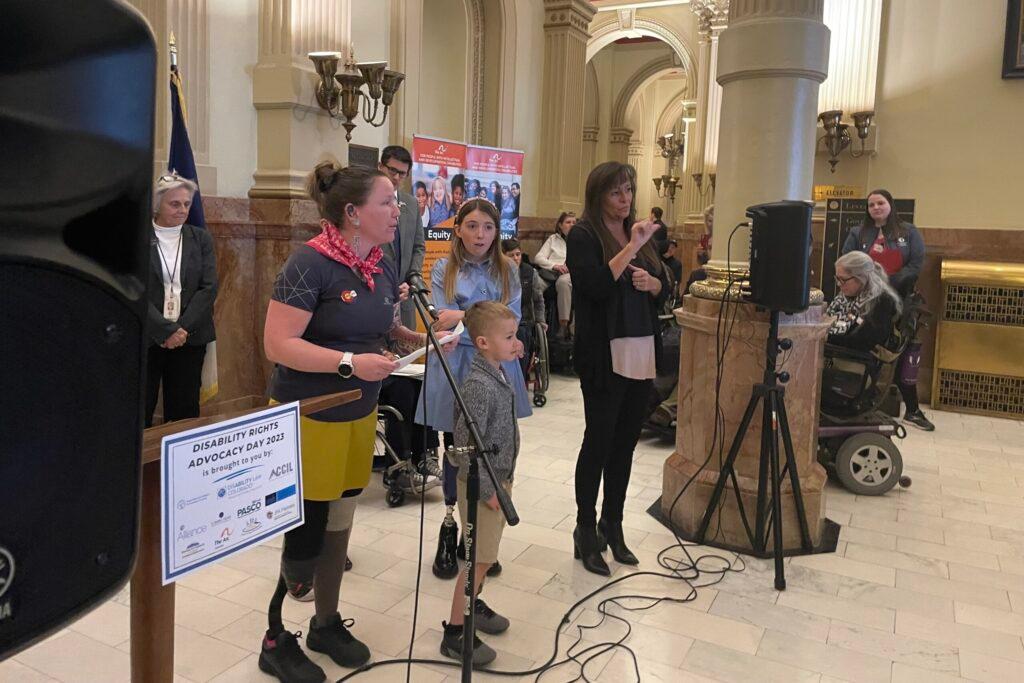
Blaine Mathis of Durango has become a prosthetic specialist in the years since losing the lower part of a leg during a rock climbing injury. While she has continued her outdoor passions, getting the right devices has proved a challenge.
“I rock climb, I climb ice, I gravel ride, I mountain bike. I do it all. It's not simple or easy, and it's very much individually based,” said Mathis. “There's not a single prosthetic design that fits it all. Each activity requires a unique socket design suspension system.”
Without the proper prosthetic, Mathis said she can end up with blisters and other injuries.
‘They can’t ignore it’
Perhaps the most consequential of this year’s disability rights bills would make it easier to file a discrimination lawsuit and would potentially increase the potential penalties for entities found in the wrong.
Under the bill, people would no longer be required to first try to resolve the issue through the Colorado Civil Rights Division before they could file a lawsuit. It would also require courts to award attorneys fees and allow damages for emotional distress.
“What I regret is the many ways that this world, that this nation, that this state is not accessible,” Ortiz told his colleagues on the House Judiciary Committee when asking for their support on House bill 1032. “And the many ways that that kind of discrimination is overlooked. Intentional or not, the result is still the same. And yeah, you better believe I'm passionate about this.”
Bill opponents warned the changes could be too punitive and wouldn’t give businesses or local governments enough time to try to resolve an issue before a lawsuit is filed.
Heather Stauffer, a lobbyist for the Colorado Municipal League and Colorado Counties Incorporated, said those organizations support the bill’s goal of improving access for those with disabilities. But she argued the current law already strikes the right balance, giving people an alternative to lengthy and expensive litigation, while also trying to limit baseless claims.
“We believe that this bill disrupts that balance currently in statute and exposes local governments, and by extension their taxpayers, to extraordinary liability,” she said.
Two Democrats joined Republicans to oppose the measure, leaving it to pass the committee on a single vote.
Disability rights advocates say having a lawmaker with a visible disability at the Capitol has made a big difference when it comes to elevating these policy discussions.
“It's very different when it's one of them. They can't ignore it,” said Reiskin of how Ortiz has changed the way other lawmakers approach this issue.
Reiskin said it’s not that lawmakers have always ignored the concerns of the disability community, but with Ortiz at the table, they have to engage with them in a whole different way.
“That's part of what integration looks like, right? Is that you have colleagues, so you have something in common and that makes us less of another.”
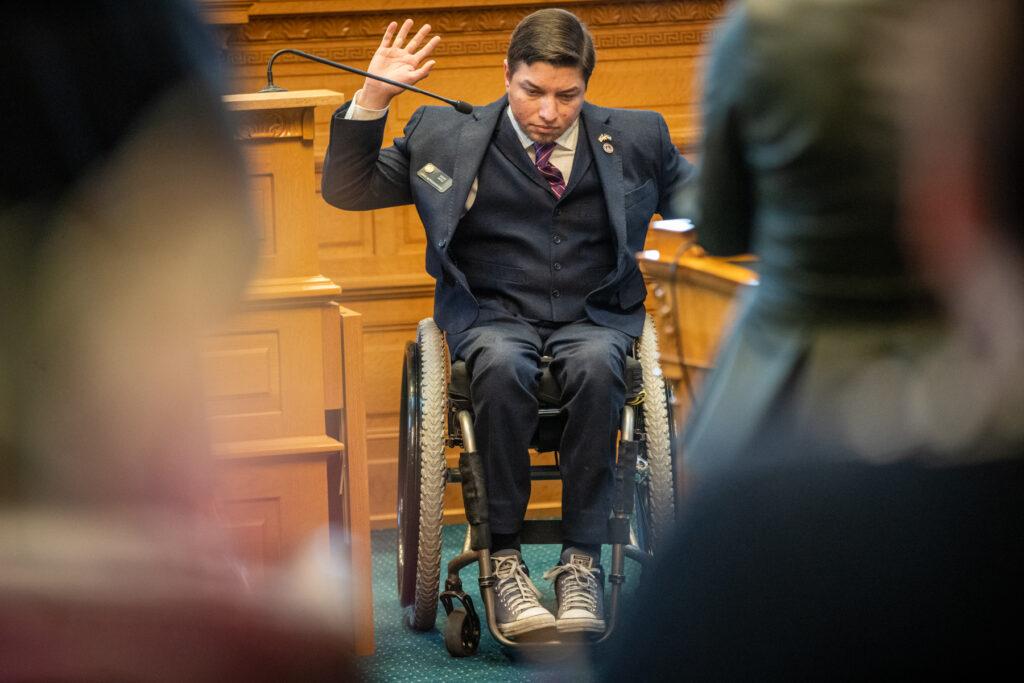
When Ortiz was first elected in 2020 the state had to modify the House chamber just to make it possible for him to reach his desk on the floor. Last session the legislature had a new lift to the Speaker’s podium, enabling him to preside over floor debates. But the Capitol is far from fully accessible — wheelchair users still can’t move around the full perimeter of the House, or readily access the floor of the Senate, which has steps at each entrance.
It’s a similar story in the chambers of many local governments around the state — stairs, narrow aisles and raised platforms block wheelchair users from participating in public debates and deliberations.
“If it's a place where the public is to be heard, whether we're talking about city, state, county, school boards, then those places need to be accessible — period,” said Ortiz. “And not just for people coming in, but for elected leaders.”
The issue of accessibility recently came to the fore in the Denver municipal elections, after councilmember Chris Hinds, who uses a wheelchair, was left with no option but to crawl on stage for a debate. Hinds said, despite the ADA, key areas of Denver’s City and County Building weren’t wheelchair accessible until he joined city council.
“Yes, it was law, but it took someone getting elected to actually effect that change,” said Hinds.
To prevent future elected officials from going through this experience, Ortiz has yet another bill in the works. It would require all government meetings to provide remote access, allowing members of the public to participate, even if they can’t easily leave their homes. Another provision, geared toward encouraging more people with disabilities to run for office, would set a timeline for city, local and state government to ensure any building where public debate occurs be fully accessible to wheelchair users.
Ortiz said he thinks lack of access is a big reason why he’s the first — and so far only — legislator who uses a wheelchair.
“Do you think there's people living with a disability that don't want to serve their community this way? Or maybe just maybe, do you think there's so many barriers and so much rampant ableism and discrimination, intentional or not, that keeps us from doing this work?” he asked his colleagues at a recent hearing on a disability rights bill.







